Trekking to the "Roof of Africa" is a once-in-a-lifetime adventure that challenges the body and mind. The Rongai Route on Mount Kilimanjaro offers a captivating journey, guiding climbers through diverse ecosystems and culminating in a summit attempt at the iconic peak. Spanning six days, this expedition promises breathtaking vistas, camaraderie among fellow adventurers, and the satisfaction of conquering one of the world’s most renowned natural wonders. With careful preparation and the expertise of seasoned guides, climbers can embark on this unforgettable expedition, ready to embrace the thrills and challenges that await them on the slopes of Kilimanjaro.
Key Points
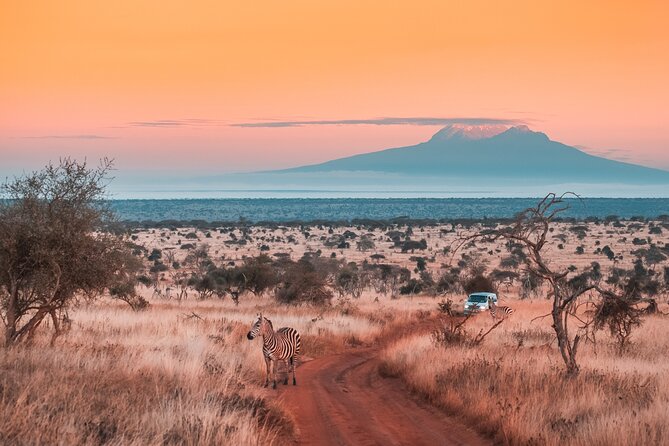
- The Rongai Route offers a less crowded, gradual ascent approach to Mount Kilimanjaro, providing a serene climbing experience with stunning peak views.
- Proper physical and mental preparation, including cardiovascular training, gear selection, and acclimatization, is crucial for a successful Kilimanjaro climb.
- The 6-day itinerary covers diverse ecosystems, including forests, moorlands, and alpine deserts, culminating in the summit attempt at Uhuru Peak.
- Well-equipped campsites with sturdy tents, communal dining spaces, and basic toilet facilities are provided, with experienced guides and porters to assist.
- Diverse local and international meals, including vegetarian, vegan, and gluten-free options, are prepared by the experienced staff to cater to climbers’ dietary needs.
Overview of the Rongai Route
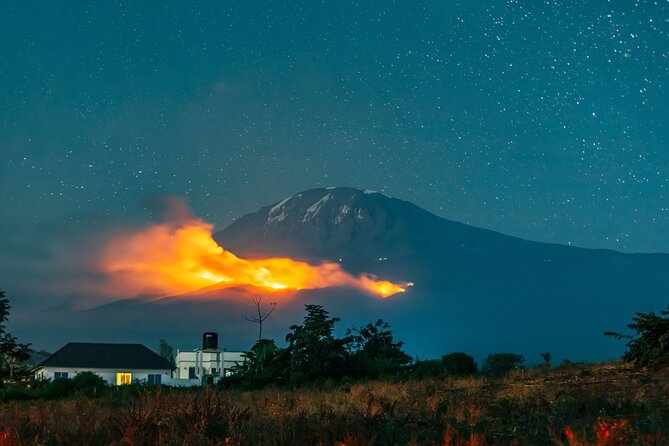
The Rongai Route is one of the less crowded paths up Mount Kilimanjaro, making it a popular choice for climbers seeking a more serene and remote experience.
This route approaches the mountain from the northeastern side, offering stunning views of the peak and the surrounding landscapes. The trail is relatively gentle, with a gradual ascent that allows climbers to acclimatize more easily.
Along the way, trekkers will encounter diverse ecosystems, from lush forests to barren alpine deserts.
The Rongai Route is a challenging but rewarding experience, providing a unique perspective on one of the world’s most iconic mountains.
Here are more great tours and experiences we've reviewed in Moshi
Preparing for the Kilimanjaro Climb
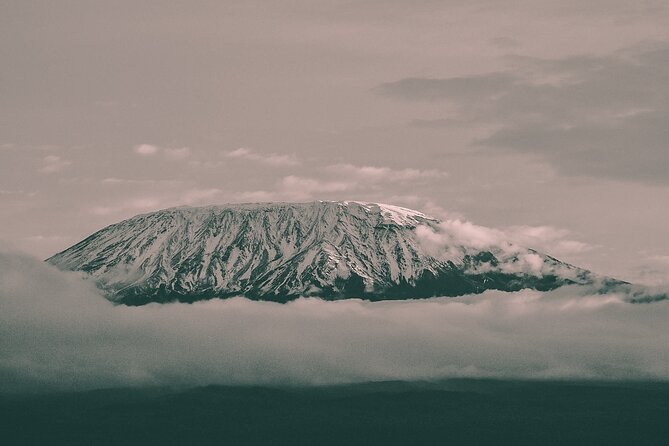
Preparing for the Kilimanjaro climb requires thorough physical and mental preparation. Climbers should engage in regular cardiovascular exercises, such as hiking, running, and cycling, to build endurance.
Strength training, particularly for the legs and core, is also essential. Proper gear, including high-quality hiking boots, insulated clothing, and a reliable backpack, is crucial for a successful ascent. Climbers should also practice using their gear beforehand to ensure a comfortable and safe experience.
Mentally, climbers must be prepared to overcome challenges, manage altitude sickness, and maintain a positive attitude throughout the trek. With the right physical and mental preparedness, climbers can increase their chances of reaching the summit of Kilimanjaro.
Day-by-Day Itinerary and Highlights
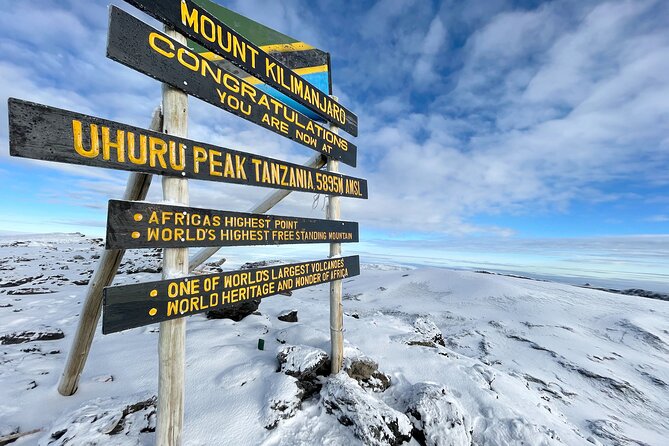
Conquering Mount Kilimanjaro via the Rongai Route takes adventurers on a six-day journey through diverse landscapes and ecosystems.
Day 1 begins with a drive from Moshi to the Rongai Gate, where the trek commences through grasslands and pine forests.
Days 2 and 3 ascend through moorland and alpine desert, offering stunning views of the mountain.
On Day 4, hikers reach the Mawenzi Tarn campsite, situated at an elevation of 4,310 meters.
The fifth day challenges climbers as they traverse the saddle between Mawenzi and Kibo peaks.
The final day, Day 6, features the summit attempt, allowing adventurers to witness the breathtaking sunrise from the Roof of Africa.
Accommodation and Camping Arrangements
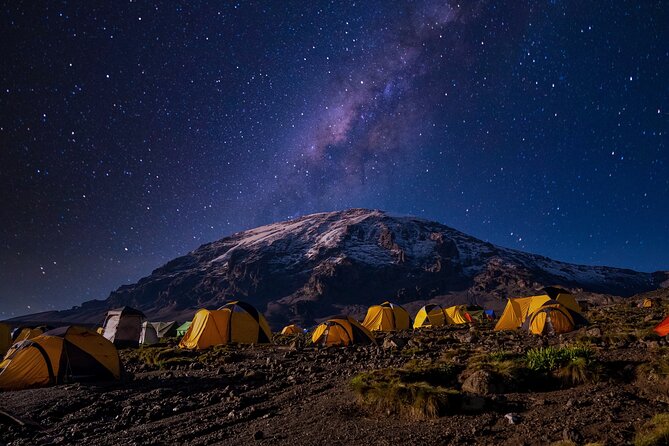
Where do adventurers stay during the six-day Rongai Route trek up Mount Kilimanjaro?
Hikers camp at various designated sites throughout the journey. The accommodation includes:
-
Well-equipped campsites with sturdy tents, sleeping pads, and other amenities to ensure a comfortable and safe overnight stay.
-
Mess tents where meals are served, providing a communal space for climbers to rest and recharge.
-
Basic toilet facilities, including portable latrines, to maintain proper sanitation at each campsite.
-
Adequate water sources nearby for hydration and other daily needs.
-
Knowledgeable guides and porters who assist with setting up the campsites and ensuring a smooth camping experience.
Meals and Dietary Considerations
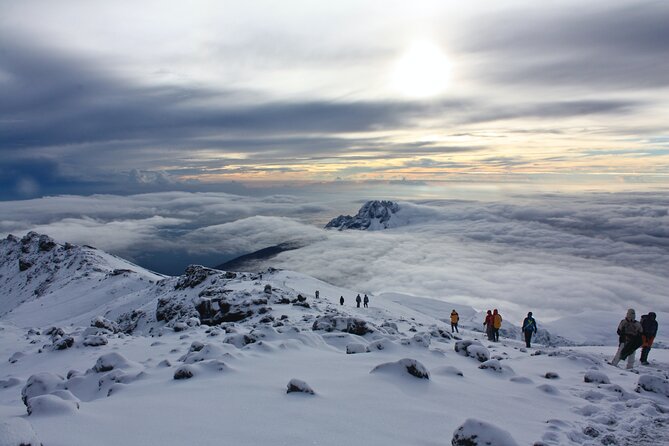
A well-balanced meal plan is an integral part of the Rongai Route trekking experience.
On this 6-day climb, hikers can look forward to 5 breakfasts, 5 lunches, and 6 dinners. The meals are prepared by the experienced cooking staff and include a variety of local and international dishes to cater to different dietary needs.
Vegetarian, vegan, and gluten-free options are available upon request. Packed lunches are provided during the day’s hike, ensuring hikers stay energized.
Tips for the climbing team, including the cooks, are included in the tour price, allowing trekkers to fully enjoy their culinary experience on the mountain.
Packing List and Gear Recommendations
Preparing for the Rongai Route trek requires careful consideration of the necessary gear and equipment. Climbers should pack layers of warm, moisture-wicking clothing, sturdy hiking boots with good traction, and a durable backpack to carry their supplies.
Plus, a sleeping bag rated for cold temperatures, a headlamp, and sun protection are essential. Trekkers should also bring personal items like a water bottle, snacks, and any required medications.
- Invest in quality, weatherproof layers to stay comfortable in changing conditions.
- Prioritize functionality over fashion when choosing hiking boots and socks.
- Pack a warm sleeping bag and sleeping pad for a restful night’s sleep.
- Bring a headlamp or flashlight to navigate during early morning or evening hours.
- Protect your skin from the sun’s intense rays with sunscreen, hat, and sunglasses.
Health and Safety Precautions
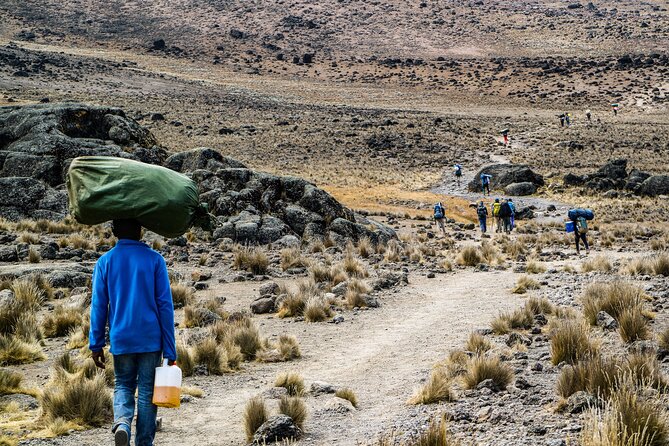
Climbers must prioritize their health and safety when trekking Kilimanjaro’s Rongai Route. Proper acclimatization is crucial, as the high altitude can lead to altitude sickness.
Drinking plenty of water, pacing oneself, and being aware of symptoms like headaches or nausea are essential. The route requires a moderate level of physical fitness, so climbers should train extensively beforehand.
Individuals with serious medical conditions should consult a doctor before attempting the hike. The trek isn’t wheelchair accessible, and public transportation is limited.
With proper preparation and vigilance, climbers can safely and successfully summit Africa’s highest peak via the Rongai Route.
What to Expect and Tips
While the Rongai Route is considered one of the more gradual ascents up Mount Kilimanjaro, climbers should still expect a challenging trek that requires mental and physical preparation.
Proper pacing, staying hydrated, and managing altitude sickness are crucial. Climbers should also be ready for changes in weather, from hot and sunny days to freezing temperatures and snowfall at higher elevations.
Maintaining a positive attitude, taking breaks, and supporting fellow team members can make all the difference. Plus, being flexible and adapting to unexpected situations is key, as the Rongai Route can present unique challenges compared to other Kilimanjaro routes.
- Expect a gradual yet challenging ascent
- Prioritize hydration and altitude sickness management
- Prepare for varying weather conditions
- Foster a positive mindset and teamwork
- Remain flexible and adaptable
Frequently Asked Questions
Can I Extend the Trip Beyond 6 Days?
Yes, the Kilimanjaro climb can be extended beyond 6 days. Kentau Safaris offers longer itineraries that allow climbers more time to acclimatize, improving their chances of reaching the summit safely. Extending the trip may incur additional costs.
What Is the Maximum Group Size for This Tour?
The maximum group size for this tour is not explicitly stated in the provided information. However, as it is a private tour operated by Kentau Safaris, the group size is likely small and personalized to the needs of your.
Are There Any Additional Costs for Single Travelers?
The tour price for single travelers is the same as for other participants. There are no additional costs for solo travelers on this Mount Kilimanjaro climb via the Rongai Route, according to the provided information.
Do I Need Any Special Permits or Licenses to Climb Kilimanjaro?
Yes, climbers need a Kilimanjaro climbing permit to ascend the mountain. The permit, which covers park fees and guide services, must be obtained through a licensed tour operator like Kentau Safaris prior to the climb.
Can I Request a Specific Guide or Porter for My Climb?
For this Kilimanjaro climb, you can’t request specific guides or porters. The tour operator will assign the climbing team based on availability and experience. However, you can provide preferences, and the operator will try to accommodate your requests.
Recap
Climbing Kilimanjaro via the Rongai Route offers an unforgettable adventure. The gradual ascent and diverse ecosystems provide a scenic and tranquil journey. Climbers can expect camaraderie, delicious meals, and breathtaking views that culminate in a summit attempt at the iconic "Roof of Africa." This 6-day experience promises a unique perspective of the majestic peak and an outdoor challenge for adventurous trekkers.
More 6-Day Experiences in Moshi
More Tour Reviews in Moshi
Not for you? Here's more things to do in Moshi we have recnetly reviewed
- 7 Best 3 Day Tours In Moshi
- 14 Best 4 Day Tours In Moshi
- 2 Best Private Car With Driver Services In Livingstone
- 4 Best Private Car With Driver Services In Moshi
- 15 Best Coffee Tours And Tastings In Moshi
- Marangu Route 6 Days 5 Nights/Kilimanjaro Climb
- Private 5-Days Serengeti Trails With Kojuu Safaris
- Full Day Private Safari – Tarangire National Park
- 9 Days 8 Nights Walking Safari
- Mt Kilimanjaro Climbing; 6 Days Machame Route
- Kilimanjaro Climb – 6 Days Marangu Route
- 5 Days African Safaris
